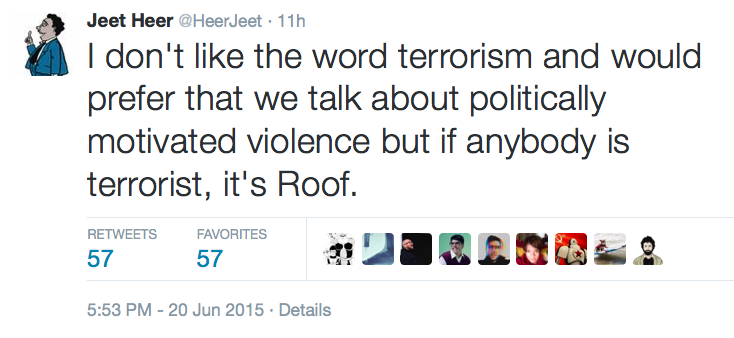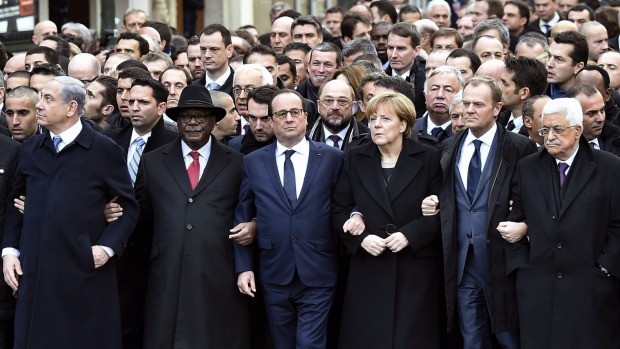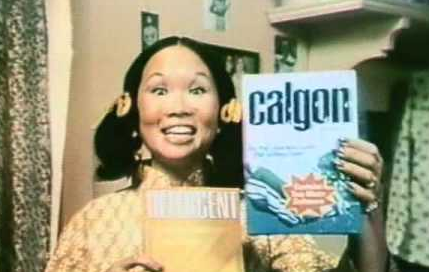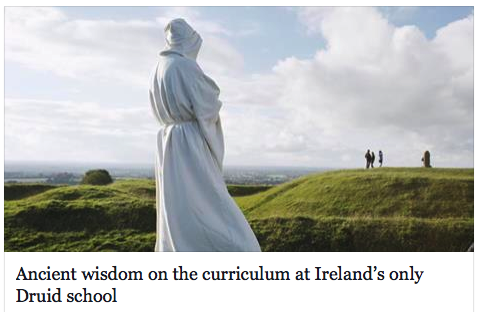
There’s a new commercial playing in these parts, in which a toothpaste company tangentially links their product to enhanced school performance.
Take a look. Continue reading “Critical Thinking Applications #47”

A Peer Reviewed Blog

There’s a new commercial playing in these parts, in which a toothpaste company tangentially links their product to enhanced school performance.
Take a look. Continue reading “Critical Thinking Applications #47”
“From this point of view, science…is rhetoric, a series of efforts to  persuade relevant social actors that one’s manufactured knowledge is a route to a desired form of very objective power.”
persuade relevant social actors that one’s manufactured knowledge is a route to a desired form of very objective power.”
Donna Haraway, “Situated Knowledges: The Science Question in Feminism and the Privilege of Partial Perspective” in Feminist Theory Reader: Local and Global Perspectives (2013)
 I find that a very interesting tweet. (Click it to go to the author‘s Twitter account.) For ever since the inauguration of the War on Terror people on the left have critiqued this notion of terrorism, seeing it as an empty rhetorical term that does significant political work by heightening anxiety among a population (like increasing the terror level warning, as we used to see periodically in the US); for it creates the impression that there’s some acts of violence that are somehow worse than others, more nefarious, their perpetrators are not being good sports and playing by the rules of war (but, really, who does?).
I find that a very interesting tweet. (Click it to go to the author‘s Twitter account.) For ever since the inauguration of the War on Terror people on the left have critiqued this notion of terrorism, seeing it as an empty rhetorical term that does significant political work by heightening anxiety among a population (like increasing the terror level warning, as we used to see periodically in the US); for it creates the impression that there’s some acts of violence that are somehow worse than others, more nefarious, their perpetrators are not being good sports and playing by the rules of war (but, really, who does?).
In fact, rather ironically, use of the very word terrorism to name just some violence could constitute but one instance of what we commonly take terrorism to be, for choices of what to call terrorism could be read as having the effect of intimidating a population in service of the interests that motivate (and benefit from) that very choice. Continue reading “Is it Terrorism or Not?”

At the small liberal arts university where I work, we offer a travel course entitled “The Rhetoric of War.” The course examines the way that rhetorics (both verbal and graphic) depict war, patriotism, and the nation-state in the American context. Midway through the semester, the class takes a whirlwind trip to Washington D.C. in order to directly engage the ways in which war is memorialized.
My friend and colleague, Dr. Amy Milakovic, is one of the faculty who teaches that course; she has a forthcoming paper about the experience, with particular focus paid to the Women In Military Service For America (WIMSFA) Memorial. As Dr. Milakovic argues, the attempt to honor military women at WIMSFA happens through a narrative that works only to the degree that it actually diminishes women. WIMFSA achieves this by reinforcing traditional gendered stereotypes at the same time that its physical appearance emphasizes invisibility and insignificance, two terrible ironies achieved in a place that claims to highlight and celebrate women in the military. Continue reading “The Memory That Forgets: The Women in Military Service for America Memorial”

 So read the report in a variety of newspapers on Wednesday; elaborating, the story continued: Continue reading “Jousting Matches”
So read the report in a variety of newspapers on Wednesday; elaborating, the story continued: Continue reading “Jousting Matches”
 The many rallies in Paris and elsewhere yesterday provide an intriguing example of the malleability of unity as a symbol. The crowd in Paris, according to reports, was both enormous and diverse, including a range of foreign dignitaries and political leaders. In addition to various European leaders from Russia, Germany, and Britain alongside the President of France, Israeli Prime Minister Binyamin Netanyahu and Palestinian leader Mahmoud Abbas both participated. The Guardian described the Paris march,
The many rallies in Paris and elsewhere yesterday provide an intriguing example of the malleability of unity as a symbol. The crowd in Paris, according to reports, was both enormous and diverse, including a range of foreign dignitaries and political leaders. In addition to various European leaders from Russia, Germany, and Britain alongside the President of France, Israeli Prime Minister Binyamin Netanyahu and Palestinian leader Mahmoud Abbas both participated. The Guardian described the Paris march,
This was a nationwide outpouring of grief, solidarity and defiance. Parisiens of all ages, religions and nationalities turned out en masse not only to show their respect for the victims but their support for the values of the Republic: “liberté, égalité, fraternité” – freedom of speech and freedom of the press.
 Tennis fans may know that Venus Williams lost in the U.S. Open yesterday. What I found interesting during a weekend report from her post-match interview, was a turn of phrase that I’ve heard many times in sports — in fact, in an interview from the same day, when he advanced but only after a surprisingly close match, Roger Federer said pretty much the same thing in his post-match interview. Continue reading “Victory in Defeat”
Tennis fans may know that Venus Williams lost in the U.S. Open yesterday. What I found interesting during a weekend report from her post-match interview, was a turn of phrase that I’ve heard many times in sports — in fact, in an interview from the same day, when he advanced but only after a surprisingly close match, Roger Federer said pretty much the same thing in his post-match interview. Continue reading “Victory in Defeat”
 NPR ran a story the other day based on a Daily Beast article about the disappointing reality that a lot of popular craft whiskeys that cater to the discerning consumer with an appreciation for the finer things are actually not produced in artisanal small batches at all but instead hail from the large Midwest Grain Products (MGP) factory in Indiana. How to tell you’re getting the “real thing”…? Check whether the product is “distilled by” or “bottled/produced by” the company—a big difference when looking for the origins of the whiskey you’re consuming. Continue reading “Not That There’s Anything Wrong with That…”
NPR ran a story the other day based on a Daily Beast article about the disappointing reality that a lot of popular craft whiskeys that cater to the discerning consumer with an appreciation for the finer things are actually not produced in artisanal small batches at all but instead hail from the large Midwest Grain Products (MGP) factory in Indiana. How to tell you’re getting the “real thing”…? Check whether the product is “distilled by” or “bottled/produced by” the company—a big difference when looking for the origins of the whiskey you’re consuming. Continue reading “Not That There’s Anything Wrong with That…”
 I assume you’ve heard plenty of news from the Hamas/Israel conflict that’s happening right now, particularly the back and forth over the innocent civilians who are either being terrorized by rocket attacks into Israel or the innocent civilians being killed daily in Gaza. Or, to rephrase, maybe you’ve heard the arguments for why it is or is not improper to consider certain people as civilians, i.e., arguments for why so-called non-military targets are as legitimate as any and not just the unfortunate (or perhaps inevitable) “collateral damage” that comes with war. Continue reading “War of Words”
I assume you’ve heard plenty of news from the Hamas/Israel conflict that’s happening right now, particularly the back and forth over the innocent civilians who are either being terrorized by rocket attacks into Israel or the innocent civilians being killed daily in Gaza. Or, to rephrase, maybe you’ve heard the arguments for why it is or is not improper to consider certain people as civilians, i.e., arguments for why so-called non-military targets are as legitimate as any and not just the unfortunate (or perhaps inevitable) “collateral damage” that comes with war. Continue reading “War of Words”
 I saw a friend on Facebook post the following story (click the pic to read it):
I saw a friend on Facebook post the following story (click the pic to read it):
 …, along with the following comment:
…, along with the following comment:
Well this is interesting. Ah, and “ancient wisdom” once again rears its questionable head.
Which made me think of this classic commercial from the 1970s:
I’m not sure if there could be a better way to start thinking about the rhetorical uses in the present of the discourse on the past than this commercial — for, if you ask me, this is what’s going on every time you hear the discourse on origins or antiquity being used.
Coz there’s always some hot shot trying to sell something. And sometimes, if we make it sound dusty and yellowed in just the right way, there’s always someone willing to buy it.
